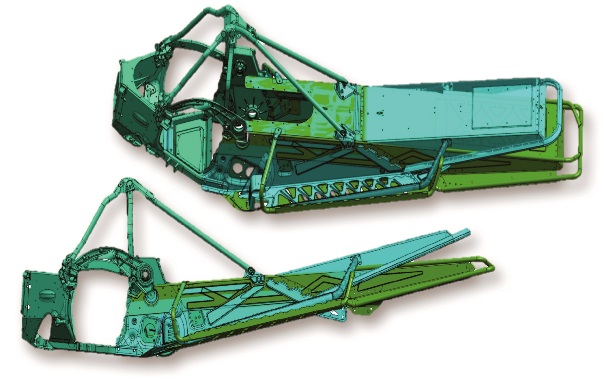
Ten years ago Bombardier sold its recreational divisions that led to the formation of BRP — maker of Ski-Doo, Sea-Doo, Can-Am and Evinrude recreational products. Now, BRP’s owners are putting the company up for an initial public offering, or IPO.
BRP has wanted to go public since 2008, but the Great Recession prevented that move. Now with an improved economic climate and BRP competitors Arctic Cat Inc. and Polaris Industries Inc. experiencing big gains on the New York Stock Exchange, the timing seems to make sense.
Here is a story from FinancialPost.com, a Canadian business website:
MONTREAL — Ski-Doo snowmobile maker BRP Inc. is returning to the public markets with a modest-sized offering that will leave its current owners with voting control of the company.
Ten years after Bombardier Inc. sold the business to private investors including Boston private equity firm Bain Capital, BRP’s owners are moving forward with an initial public offering on the Toronto Stock Exchange. The company is seeking to raise in the range of $250 million. Marketing for the deal hasn’t started.
“I think investors are excited about these companies,” said Mike Smith, an analyst at Feltl & Co. Securities in Minneapolis, noting that BRP rivals Polaris Industries Inc. and Arctic Cat Inc. have both had spectacular share price runs over the past two years.
“They like the international growth potential. And domestically, consumers have certainly come back” with a renewed appetite for motorsport vehicles after the 2008 financial crisis and recession, Smith said.
Bain is the largest shareholder in BRP with an estimated 50 percent stake. Quebec’s Bombardier and Beaudoin families, whose ancestor Joseph-Armand Bombardier invented the recreational snowmobile and founded the company, hold about 35 percent through an investment vehicle called Beaudier Group. Pension fund manager Caisse de dépôt et placement du Québec has the remaining 15 percent.
The three shareholder groups are staying invested in the near term and will control the company’s multiple-voting shares, according to the prospectus. Bain will exit its position over time, said one person familiar with the matter. Under a deal negotiated between the two parties, Caisse will offer Beaudier first rights to buy its shares should it decide to divest its stake.
Bain has stayed invested in BRP much longer than its typical five-year timeline. It had sought to exit earlier, but previous plans to take the company public in 2008 were derailed after the economic collapse.
Those events also hit BRP hard.
The company’s nearly $3 billion in annual revenue dropped 40 perecnt over the following six months and it laid off 2,000 workers, many of them in its home base of Valcourt, Quebec. Dealers were stuck with a glut of stock they couldn’t sell as they scrambled to pay interest to lenders who had financed their inventory. Roughly 15 percent of them went bankrupt.
The Quebec government eventually stepped in with a $50 million loan that allowed BRP to continue its research and development projects.
From the wreckage, a smaller and more nimble BRP has emerged. Business has recovered. The company tallied some $121 million in profit on revenues of $2.9 billion for its fiscal year ended Jan.31, 2013, according to the prospectus. There’s been an improvement in earnings in each of the last three years.
Sellers believe there is significant investor appetite for an established Canadian consumer product name in a market dominated by resources and banks — especially one tied to North American growth.
BRP said in the filing it will use the proceeds to repay debt. If the over-allotment is exercised by the underwriters, it will use any additional funds for working capital and general corporate purposes.
The company paid special distributions on April 15 totaling $376 million to its existing shareholders, most of it in dividends. It said it expects to pay them another $155 million before the IPO closes. It won’t pay any dividends on the new shares it will offer.
Bank of Montreal, Royal Bank of Canada, UBS AG and Citigroup Inc. are leading the sale.



